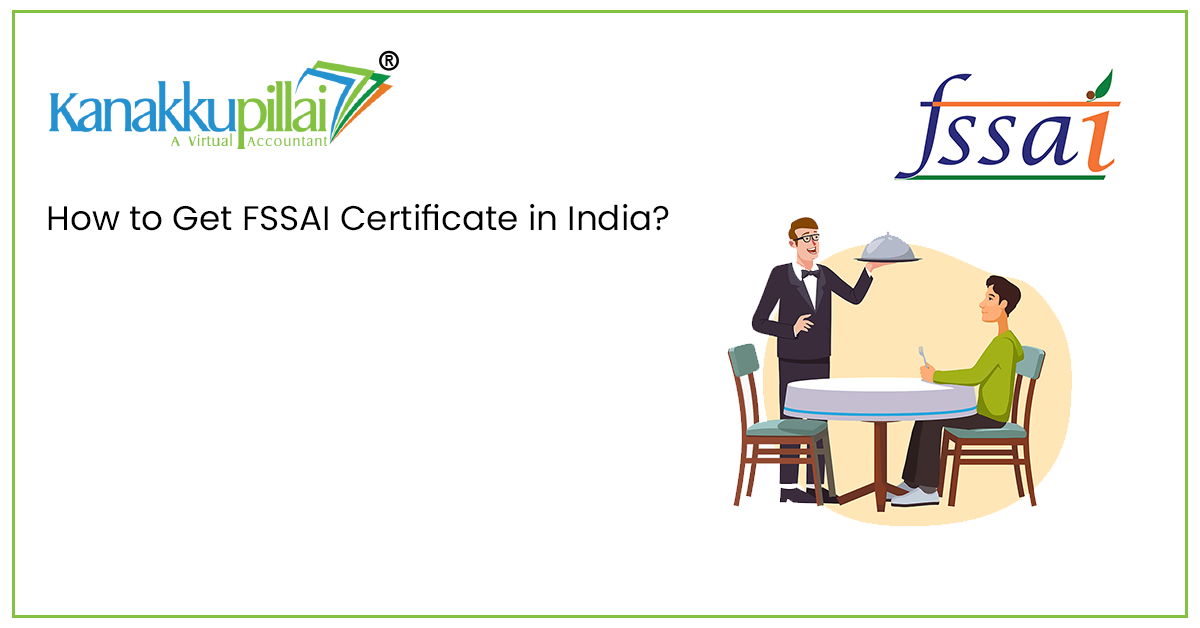If you want to start a food business in India—whether it’s a small food stall, a restaurant, a cloud kitchen, or even a packaged food brand—you must get an FSSAI certificate. This certificate is issued by the Food Safety and Standards Authority of India, refer as (FSSAI), a government body is responsible for regulating and supervising food safety.
This blog will explain what the FSSAI certificate is, who needs it, the different types, the documents required, and the step-by-step process to apply for it. Everything is explained in simple language so that even first-time business owners can understand and follow the process easily.
What is an FSSAI Certificate?
The FSSAI certificate is a license or registration that confirms a food business meets the required safety and hygiene standards and norms set by the Indian government. It ensures that the food being prepared, stored, or sold is safe for human consumption.
Once you get this certificate, your business will receive a 14-digit FSSAI license number, which must be printed on food packaging or displayed at your food outlet.
Who Needs an FSSAI Certificate?
Any individual or company involved in the food business must have this certificate. This includes:
- Restaurants, cafes, and hotels
- Food processing and manufacturing units
- Packaged food sellers
- Online food businesses and delivery kitchens
- Food storage or warehousing services
- Exporters and importers of food items
- Small home-based food businesses and caterers
Even small vendors like tea stalls, homemade pickles/jams sellers, or bakery items makers require basic FSSAI registration.
Types of FSSAI Licenses
FSSAI offers mainly three types of licenses based on the size and nature of your business:
1. FSSAI Basic Registration
For small businesses with an annual turnover of up to ₹12 lakh.
Example: home-based kitchens, petty food vendors.
2. FSSAI State License
For medium-sized businesses with annual turnover between the amount of ₹12 lakh and ₹20 crore.
Example: mid-level restaurants, food processing units, etc.
3. FSSAI Central License
For large businesses with a turnover above ₹20 crore or those involved in import/export or operating in multiple states.
Example: big food manufacturers, exporters, etc.
Documents Required for FSSAI Certificate
Here are the commonly required documents:
- Identity proof (Aadhaar card, PAN card)
- Address proof (utility bill, lease agreement)
- Passport-size photograph
- Business registration certificate (Shop Act, Partnership deed, etc.)
- Food safety management plan (for State and Central licenses)
- NOC from local municipality (if applicable)
- Details of the food products being handled
- Equipment details (in case of manufacturing units)
How to Apply for FSSAI Certificate: Step-by-Step Process
Step 1: Register on the FSSAI Portal
Go to https://foscos.fssai.gov.in and create your user ID and password.
Step 2: Select the Right Type of License
Select the relevant license based on your business turnover and nature. You can use the license selection tool on the portal if unsure.
Step 3: Fill in the Online Application
Complete the application form by entering personal, business, and food product details.
Step 4: Upload Required Documents
Scan and upload all required documents in the given format and size.
Step 5: Pay the Fees
Pay the license fee online. The fee varies depending on the license type and duration (1 to 5 years).
Step 6: Submit the Application
Once everything is filled out and documents uploaded, submit the application.
Step 7: Inspection (if required)
In some cases, the FSSAI officer may visit your premises for inspection.
Step 8: Get the License
If all goes well, you will receive the FSSAI license within 7–60 working days (depending on the type of license).
You can download the license from the portal once it is approved.
Why Is the FSSAI Certificate Important?
- Ensures food safety and hygiene
- Builds customer trust
- Helps in business expansion
- Mandatory for legal compliance
- Needed for online platforms like Zomato, Swiggy, Amazon, etc.
Conclusion
Getting an FSSAI certificate is not just a legal formality—it shows your commitment to providing safe and hygienic food. Whether you are just starting out or running a large food enterprise, having a valid FSSAI license adds credibility to your business and ensures that you meet the necessary food safety norms and standards.
If the process seems confusing, you can also seek help from professional consultants who assist with FSSAI registration and documentation.





